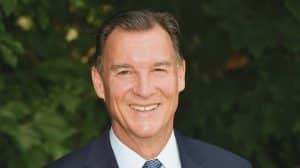
3rd Congressional District special election: Mazi Melesa Pilip does not have the needed skills
February 3, 2024
Publication: Newsday
By: The Editorial Board
Mazi Melesa Pilip is seeking to ride a rocket of anger launched by the nation’s border mess all the way to Congress. But after the votes are counted and the teams of consultants, pollsters and image-makers depart, the tough job of representing the 770,000 residents of the Third Congressional District begins.
A complex skill set of government knowledge, political experience and access to power is needed to be an effective lawmaker on immigration, additional funding for Israel, and government spending during the extreme partisan divide in Washington right now.
Pilip is the wrong person for the job.
Pilip, a Nassau County legislator running on the Republican line, hasn’t done many detailed media interviews during this special election campaign to fill the remaining months of the ousted George Santos’ term. She did not make herself available for an endorsement interview with the editorial board, so our assessment of her political skills is based on having met with her during her 2021 and 2023 campaigns for the county legislature and closely monitoring her work as a legislator.
Born in a rural Ethiopian village, Pilip, 44, was airlifted with her family to Israel in an extraordinary military mission to provide save haven to an ancient sect of Jews living in an increasingly intolerant East African nation. Pilip later served in the Israeli Defense Forces as a gunsmith in a paratrooper division.
Her life experiences, she said, gave her special insight into the uproar over the murder of George Floyd and the need for public safety. Pilip told the editorial board in 2021 that discrimination against her and an incident her biracial son had on a Great Neck schoolyard shape her views.
“I know what being discriminated against” is about, she said. “I grew up in Ethiopia as a minority Jew . . . I moved to Israel when I was 12 years old. And we were also a minority, a Black person there . . . I went through this all my life.”
She advocates for a balance: Law enforcement must be well-funded and supported, but also educated on cultural differences. She suggested regular psychological assessments to identify officers undergoing stressful episodes that could affect their performance.
SHORT ON SOLUTIONS
But on the current issue powering her campaign, where her life experiences are also relevant, she is silent.
The National Republican Campaign Committee is spending millions in television ads to make the influx of migrants in New York City the primary cudgel to defeat her Democratic opponent, Thomas R. Suozzi. (Please read our detailed assessment of Suozzi’s candidacy here.) Yet, House Republicans are trying to thwart a bipartisan Senate bill that would help make the border more secure.
The urgent question for Pilip is how she would vote on the bill. And what are her positions on an overall revision of immigration rules?
Pilip could be a strong voice for her diverse constituents. Would she support granting legal status to those brought here as minors? Does she see a path to permanent legal residency for those who have built successful lives while living in the shadows? Pilip married a U.S. citizen and moved to New York in 2005. What is her position on family reunification? Would she increase quotas to allow more immigration? She hasn’t answered these questions.
When asked about abortion, Pilip, the mother of seven, says she personally opposes abortion but that women should control decisions over their bodies. Why then did she accept the line of the Conservative Party, which has fought for decades to make it illegal? Pilip says she won’t vote for a national abortion ban. But such a vote is unlikely to happen.
Pilip would, if elected, face a vote on funding for the military and whether to keep in place the current ban on abortions for active service members, except in cases of rape or when the mother’s life is at risk. As someone who served in the military elsewhere, would she follow the GOP’s insistence on not providing abortion services to women in uniform or rescind the rule?
In the 2021 interview, Pilip was unfamiliar with the county’s fiscal watchdog, the Nassau Interim Finance Authority, which plays a crucial oversight role, especially on county contracts with its public service unions. She asked for an explanation of NIFA, then said, “We have to be more responsible and work together and solve the issues.” After serving two years, Pilip in her 2023 interview still had limited understanding of NIFA and county finances. Similarly, she also showed little understanding of the dire problems facing the Nassau University Medical Center.
Asked in October what she could do to get Nassau to speed up the spending of millions of dollars awarded for opioid intervention and treatment programs, she said bail reform is the problem.
SLIM TRACK RECORD
Pilip hasn’t made the case that her slim track record has prepared her for the giant leap to Congress. For her entire time in elective office so far, Pilip has relied on the Republican Party to tell her what to do rather than doing the hard work of learning the issues and developing her policy priorities. There is no reason to think anything will change if she heads to Washington.
She is often accompanied at campaign events by a GOP party validator such as Nassau County Executive Bruce Blakeman or Rep. Anthony D’Esposito, who step in to answer questions for her. She has agreed to only one debate.
Pilip, a registered Democrat, says she will change her registration after the election and admits she failed to vote in elections from 2016 until 2020, the year she began to have political ambitions.
For so many reasons, we have little confidence she can be the practical lawmaker and independent voice her district needs. Nassau Republicans once again have put their brand behind an unknown and inexperienced candidate in the hopes their political machine can get out enough votes to put Pilip over the finish line. It’s a deeply cynical move that disrespects voters and threatens to continue the paralyzing inability of Congress to fix the nation’s pressing problems.
Pilip is the wrong person for the job.
Recent Articles



Candidate Profile: Tom Suozzi For 3rd Congressional District


Daily Point – Nassau PBA endorsement a coup for Suozzi


